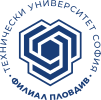ECTS code: MpES
Education
forms:
Full-time
Term of education:
Full-time: 1 year – for MEng after BEng
Final examination: development and public defense of a diploma project
Admission requirements: According the general procedure established for the Technical University of Sofia (https://tu-sofia.bg/foreign-applications/site/index/page/how)
Access to further studies: After the graduation in MEng degree the study could be continued in a PhD degree program in the same or in another close area specialization
Programme importance:
The tuition in major “Electronics” is conformable to the newest achievements in the field of electronics and combines theoretical knowledge and practical skills, prepares students for research, design and production activities in the field of electronic technologies and their applications in all fields of industry, communications, healthcare, etc. In addition to the basic training, modern and useful information is provided on management, organization and management of companies, marketing, international business and technology transfer, foreign language training.
General characteristics of the education:
The “Electronics” major prepares students in the fields of electronic systems, industrial electronics, medical equipment, embedded microprocessor systems with various industrial applications. Мodules and devices are built for measurement, control and testing in the fields of electronics, ecology, and the industry.
Research is also conducted in the field of green energy sources with the use of solar batteries. Development of specialized power supplies for household and industrial equipment is carried out. Modern analog, digital and microprocessor systems for control of automated power electronic converter systems for technological purposes are created, as well as and electronics regulating systems for optimizing the operation modes of power converters.
The “Electronics” major includes modules: “Medicine and industrial electronics” and “Electronic systems for management and control”. They differ in subjects studied during the last year. The specifics of every module are as follows:
The module “Electronic Equipment in Medicine and industrial electronics” extends the knowledge of students in the following scientific fields of study: – electronic equipment in medicine, devices for medical diagnostic images – X-ray and supersonic engineering; Specific medical devices for hemodialysis, lithotripsy, etc; clinical appliances; electronic tools for automaton and electronic devices for programme control. Computer-aided design systems for the investigation and design of electronic circuits are used.
The module “Electronic Systems for Management and Control” extends the knowledge of students in the following scientific fields of study: – electronic systems for management and control, methods and tools for measurement of electrical and non-electrical quantities and their control; optoelectronic and laser devices.
Excellent students in Electronics are sent to study and prepare their diploma projects in the leading European Universities (Erasmus+ programme), which is subject of an agreement.
Educational and professional goals:
The major aims to provide education in the field of electronics required for graduates of high quality, capable of immediate contribution in the field of the design, modernization and operation of electronic devices. Successful graduates should be well acquainted with information technologies and their application in engineering, have knowledge and experience in technology processes; be able to participate creatively in the process of engineering design; know the basics of economics, the organization and management, standardization and patent law, as well as the methods and requirements for developing technical documentation and protecting the environment.
Employment of the graduates:
Because of the wide-range fields of scientific study and good professional training, the graduates of the “Electronics” major are welcomed in many public and private companies in Bulgaria and abroad.
The engineers who complete the major become specialists in the development of electronic devices and systems, including embedded microprocessor systems for various applications – industrial and automotive electronics, medical equipment, IoT, etc.
